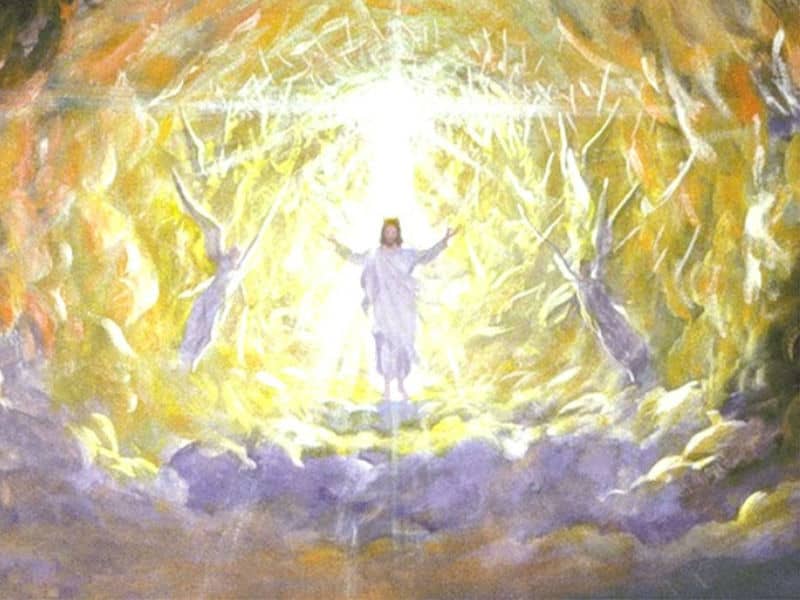So what would he say to the Creationists who today insist that the only true interpretation of the Bible is a literal one? No doubt the same thing he told the cardinals of Rome in the 17th century, said Owen Gingerich, an astronomer and scientific historian at Harvard University.
"The purpose of the Bible is for salvation, not to explain the natural history of Earth," said Gingerich, quoting Galileo in a speech Tuesday before an audience of religion students and teachers at Augsburg College in Minneapolis. "It teaches us how to go to heaven, not how the heavens go."
This polarity between literalism and rejection of the scriptures has not changed since the 17th century, said Gingerich, who is an expert on the early astronomers. Is it possible to be among those "like myself," he asked, who take the Bible seriously without believing that God created the world in six days or that the Earth is the center of the universe?
Absolutely, he claimed, especially when the origin of the battle is viewed through the lens of history: It was religious politics, not dogma, that ruled the day in Galileo's time.
"What we think of as the Galileo affair was a battle of turf," Gingerich said, over "who had the right to say what the scriptures meant." The fact that the turf happened to be Psalm 104, the scripture that implies the Earth is fixed, was incidental to the fact that Galileo dared to interpret the word of God.
Galileo's problems with the Roman Catholic church began at the 17th-century equivalent of a cocktail party held by the mother of the duke who employed Galileo as his personal mathematician and philosopher. It was during the time of Martin Luther and the Reformation, when Rome had problems with "all those Protestants north of the Alps" who were doing a lot of their own Bible interpretations, Gingerich explained.
A group of Jesuits had confirmed Galileo's observations of what were ultimately recognized as Jupiter's moons. It prompted a debate at the party between a cardinal and others about how that would jell with Psalm 104. The cardinal invited Galileo to explain all that, Gingerich said. Galileo, who had fought hard for a job description that included philosopher, obliged.
"Basically, what he said is that you cannot look to the Bible for a scientific textbook," Gingerich said, and the fight was on.
Galileo's philosophizing prompted the church to censure the book by cosmologist Nicolaus Copernicus that first proposed a heliocentric theory -- that the sun was the center of the solar system -- making the book seem more hypothetical than factual. As for Galileo, he was called to Rome and told in no uncertain terms that he was not to teach the Copernican system.
"It was unique in its historical setting," Gingerich said. "One hundred years before, or one hundred years later, there would have been no problem."
Eventually another pope came to power -- Urban the 8th, a liberal, and a patron of the arts and sciences. Galileo was in his 70s then, and he asked for permission to write a book about heliocentric theory, using tides as evidence that the Earth moved in space. The pope told him to be careful with what he wrote because God could have made the oceans move for reasons other than as a result of the Earth's movements.
He was a lot less careful than the pope wished. Galileo shocked Italy by writing a brilliant debate presented through three characters, one of whom was named "Simplicio," or simpleton. At the end of the book, when Galileo introduced the subject of tides, he quoted Simplicio saying that God might have other reasons for making the tides move.
"And the mud hit the fan," Gingerich said, because Galileo had insulted the pope, who promptly ordered the astronomer to Rome during the depth of winter and in the midst of the Black Plague. His book was banned, he was compelled to say he did not believe the sun was the center of the solar system, and he was sentenced to house arrest for the rest of his life.
The church won that battle, but Galileo won the war, Gingerich said. He helped rewrite the rules so that science could embrace the search for a universal explanation or theory -- "a description of the nature of things" -- rather than pursue tedious efforts to prove things step by step, he said. In short, it marked the birth of science's "grand and glorious hypothesis."
Thus the greatest irony, Gingerich said, is that in the end Galileo was a far more influential theologian than Pope Urban the 8th. In 1993, the church apologized for its treatment of Galileo.

